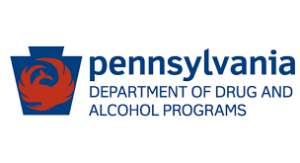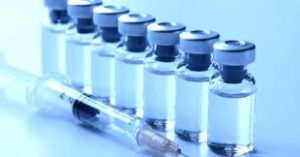PA Health Policy Update for September 22
The following is an update of selected state health policy developments in Pennsylvania from September 18 – 22. (Some of the language used below is taken directly from state documents.)
General Assembly
- The state Senate convened for voting session this week. The following bills were passed on third and final consideration.
- House Bill 1209 and House Bill 1407 make various changes to ensure Pennsylvania remains in compliance with the tobacco Master Settlement Agreement and isn’t exposed to litigation that would jeopardize tobacco settlement funding. Both bills will now be sent to Governor Shapiro for his signature.
-
- Senate Bill 712 allows clinical laboratories certified by the federal government to directly or indirectly advertise or solicit business for diagnostic laboratory testing under certain terms and conditions. Following passage, the bill was received in the House of Representatives and referred to the Health Committee.
-
- Senate Bill 773 makes various changes to the Medical Marijuana Act. Following passage, the bill was received in the House of Representatives and referred to the Health Committee.
- The House Health Committee held a public hearing on Wednesday, September 20 on House Bill 1657, which amends the Clean Indoor Air Act. A recording of the hearing may be viewed here.
- Democrat Lindsay Powell won a special election Tuesday, September 19 to fill the vacancy created by the resignation of Representative Sara Innamorato (D – Allegheny), who’s running for Allegheny County Executive. Powell’s victory will preserve the Democrat’s one-seat majority in the House of Representatives.
- The state House of Representatives will convene next Monday, September 26 and Tuesday, September 27 for voting session.
Department of Human Services
- The Department of Human Services (DHS) has issued a Medical Assistance Bulletin with updates to electronic visit verification requirements for pediatric home health aide services in the fee-for-service and managed care delivery systems.
- DHS has released for public comment its Medical Assistance and Children’s Health Insurance Programs Managed Care Quality Strategy (MCQS). Comments will be accepted until October 23, 2023. Find additional information in this Pennsylvania Bulletin notice.
- DHS has announced its intent to allocate $258 million for FY 2023-2024 inpatient disproportionate share hospital (DSH) payments. Find additional information in this Pennsylvania Bulletin notice.
- DHS has updated its calendar of mailing dates for Remittance Advices and corresponding electronic transfers and checks through October. Find the updated calendar here.
Department of Health
The U.S. Centers for Disease Control and Prevention (CDC) reported this week that a team of epidemiologists from the Pennsylvania Department of Health (DOH) was the first to identify the transmission of Legionella from an organ directly to a transplant patient. This finding will help protect transplant recipients from serious lung infections. The published research can be viewed in the CDC’s Morbidity and Mortality Weekly Report.
DOH has released a Health Advisory (PAHAN – 719) with recommendations regarding the updated (2023-2024) Monovalent mRNA COVID-19 vaccines.
Medicaid Continuous Coverage Unwinding
The Department of Human Services (DHS) is maintaining an online dashboard with Medicaid continuous coverage unwinding data. The data on this dashboard tracks the renewal process by county and zip code. Additional updates and resources about the Medicaid eligibility renewal process may be found here.
DHS has published the following resources to help providers educate patients about Medicaid renewals and what to do if they are no longer eligible for Medicaid.
Stakeholder Events
DHS – Consumer Subcommittee of the MAAC – September 27
The Consumer Subcommittee of the Medical Assistance Advisory Committee (MAAC) will hold a meeting on Wednesday, September 27 at 1:00 p.m. The agenda may be viewed here. The meeting will be held in person at the Keystone Building in the Forrest Room (400 North St., Harrisburg, PA). To participate virtually, register here.
DHS – Medical Assistance Advisory Committee (MAAC) – September 28
The MAAC will hold a meeting on Thursday, September 28 at 10:00 a.m. The agenda may be viewed here. The meeting will be held in person at the Keystone Building in the Forrest Room (400 North St., Harrisburg, PA). To participate virtually, register here.
Pharmaceutical Assistance Advisory Board – October 2
The Pharmaceutical Assistance Advisory Board will hold a virtual meeting on Monday, October 2 from 10:00 a.m. to 11:30 a.m. Find information on how to participate in this Pennsylvania Bulletin notice.
Interstate Commission of Nurse Licensure Compact Administrators – October 17
The Interstate Commission of Nurse Licensure Compact Administrators will host a free webinar on October 17 from 3:00 – 4:00 p.m. to discuss the nurse licensure compact and new rules taking effect in 2024, answer questions nurse employers often have, and explain Nursys.com and Nursys e-Notify. Find additional details and instructions on how to participate here.
 Shapiro-Davis Transition
Shapiro-Davis Transition Department of Human Services
Department of Human Services Department of Drug and Alcohol Programs
Department of Drug and Alcohol Programs Pennsylvania Health Care Cost Containment Council
Pennsylvania Health Care Cost Containment Council General Assembly
General Assembly General Assembly
General Assembly Office of the Attorney General
Office of the Attorney General Department of Health
Department of Health
 COVID-19: By the Numbers
COVID-19: By the Numbers State Revenue Update
State Revenue Update  Department of Drug and Alcohol Programs
Department of Drug and Alcohol Programs